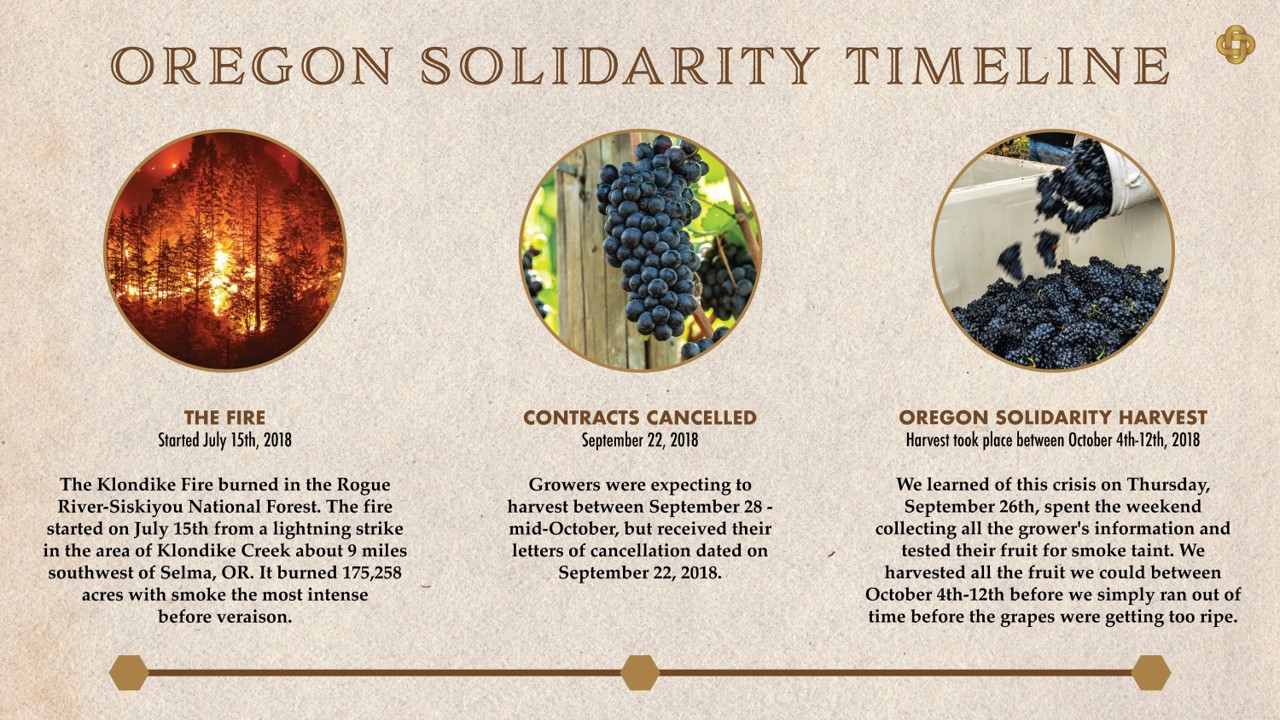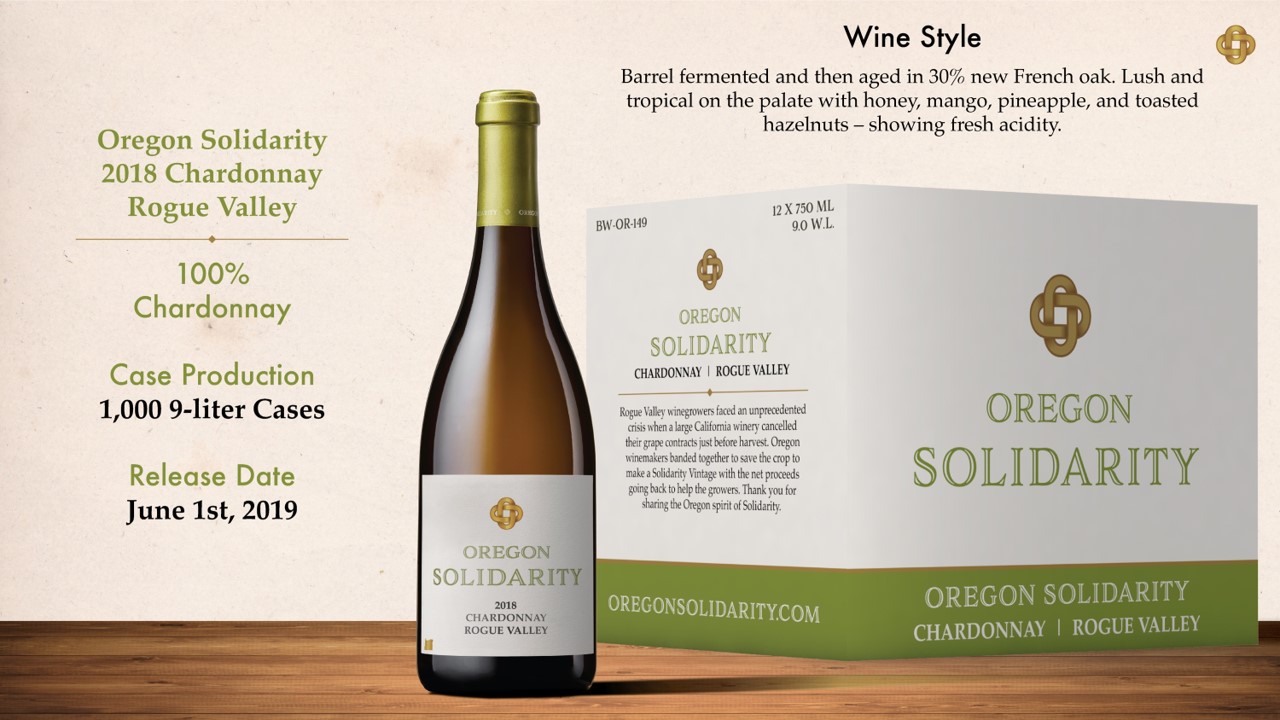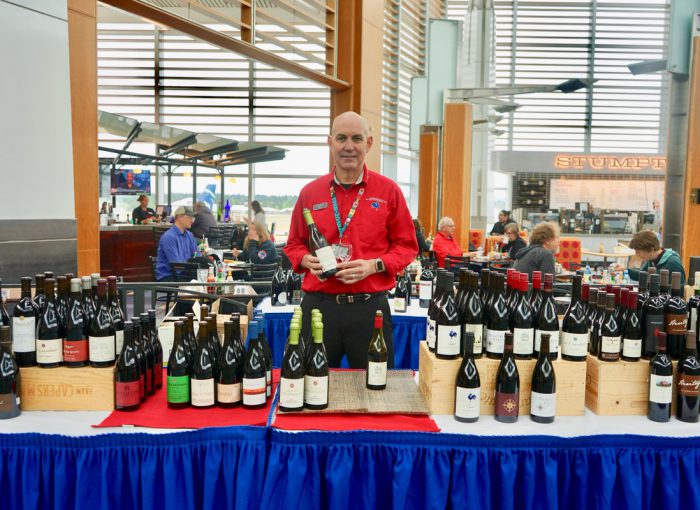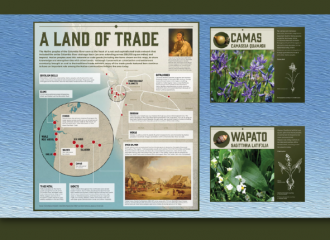When wildfires roll through, they can wreak havoc on communities—destroying homes, habitats and businesses.
That’s what was on the line for winegrowers in Oregon last year.
The Rogue Valley, a convergence of three mountain ranges in southwestern Oregon, is a haven for residents and tourists. It’s home to the Britt Music Festival and Oregon Shakespeare Festival, in addition to offering world-class fishing, rafting, hiking, mountain biking and sight-seeing. You’ll also find lush valleys that produce high-quality wines.
All these activities were threatened in an instant last summer.
On July 15, the Klondike Fire ruptured through the Rogue River-Siskiyou National Forest. Sparked by a lightning strike, the fire burned more than 175,000 acres in Rogue Valley over the summer months—threatening homes, forcing road closures and putting a halt to popular tourist activities in the region.
Just when Rogue Valley winegrowers thought they were in the clear—with the fire contained to the west of their vineyards—they faced devastating news.
On September 22, mere days before grape harvest began, a California winery that contracts with growers in the region canceled its orders, citing a concern over smoke taint. In total, more than 15 growers and about 2,000 tons of grapes were affected. This meant a significant financial loss for the winegrowers, and it was a move that could put hundreds of people out of work unexpectedly.
As this news traveled north into Willamette Valley, a group of fellow winemakers jumped into action. An independent analysis showed the Rogue Valley grapes were well below the threshold for smoke impact. In simpler terms, the grapes were wine-worthy in a region that ranks among the top in the country for wine variety and quality.
In a show of solidarity, four Willamette Valley vineyards—King Estate Winery, The Eyrie Vineyards, Willamette Valley Vineyards and Silvan Ridge Winery—banded together to save as much of the crop they could.
That’s how the Oregon Solidarity project launched.

The Willamette Valley wineries were running on borrowed time. In the wine business, it can be a matter of days—or even hours—when it comes to crafting the perfect wine. Pick too early, and the wine might smell or taste slightly like green vegetables. Too late and it could be overly sweet. Together, the wineries picked as much crop as possible before it was too late.
Oregon Solidarity paid the growers the full value of what they harvested. Grapes were immediately brought up north and divided among the four estates. On top of harvesting their own crop, the vineyards worked overtime to harvest the Rogue Valley fruit, before the grapes became overripe.
They produced three delicious Oregon Solidarity Vintage wines: rosé of pinot noir, chardonnay and pinot noir. The project is donating all proceeds to the Rogue Valley Vintners to help uninsured growers impacted by the cancelled contract.

Two of these wines have already been released and are available at Capers Café at Portland International Airport. The third, pinot noir, will be at Capers when it is released on August 1.
One of the things we love most about the state of Oregon, and we see every day as we stroll through the airport terminal, is that regional pride manifests itself through acts of kindness toward our neighbors. Oregon Solidarity embodies this spirit to its fullest. Wineries aren’t often making wine with their competitors. But when some of their own hit such a substantial hurdle, it is in their DNA—as Oregonians—to come together in solidarity.
As we head into the heart of Oregon Wine Month, celebrated throughout the month of May, know that you’ll be supporting more than one winemaker through the Oregon Solidarity project. You’ll be helping revive an entire community.





